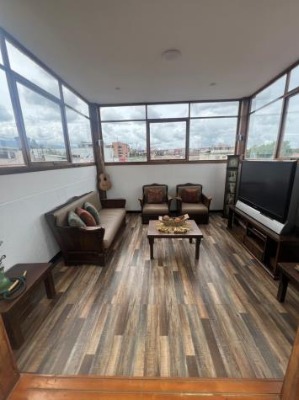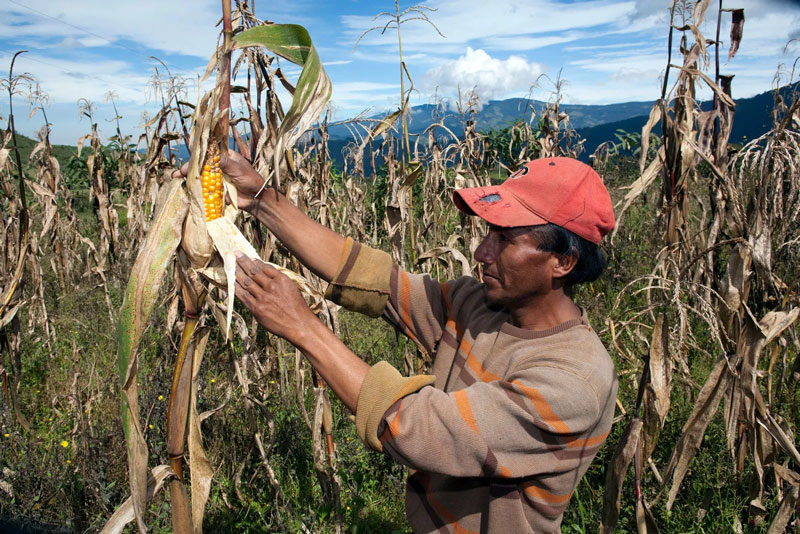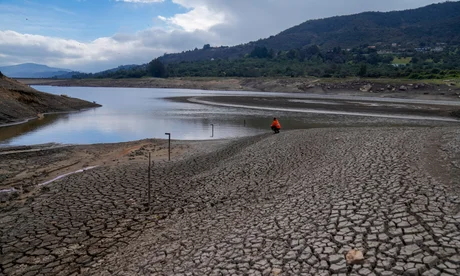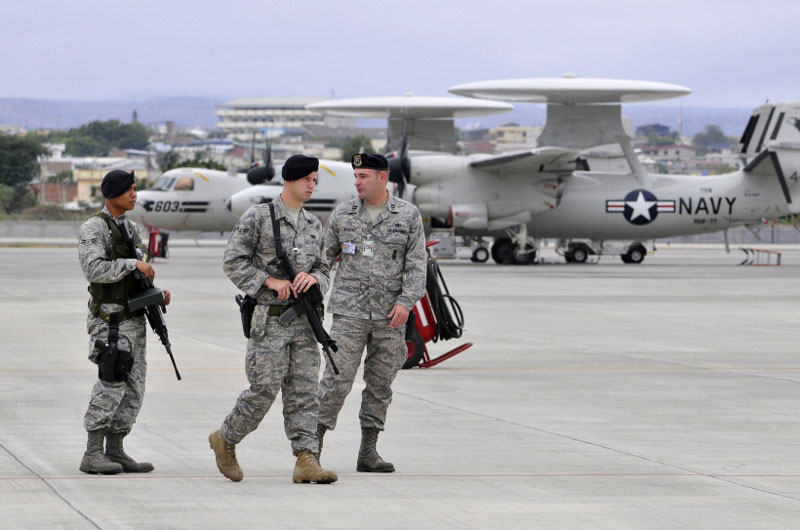Ecuador signs on with regional secuirty alliance sponsored by the Inter-American Development Bank
By Catherine Osborn
Ecuador, which is grappling with homicide rates that last year ranked among the highest in the world, might not seem like  a natural place to found a new regional security alliance. But it is precisely because of the country’s plight that it raised its hand to do so when officials from the Inter-American Development Bank (IDB) recently floated the idea.
a natural place to found a new regional security alliance. But it is precisely because of the country’s plight that it raised its hand to do so when officials from the Inter-American Development Bank (IDB) recently floated the idea.
In March, the bank upped its focus on security-related projects in part due to its own calculations on the economic toll of insecurity, which costs Latin American and Caribbean countries 3.5 percent of their annual GDP. Of the world’s 50 “most homicidal” cities last year, 40 were in the region, according to Instituto Igarapé.

President Daniel Noboa at military event in Manta in early September.
Envoys from at least 14 countries held a meeting about the prospective new IDB-backed alliance in August in the Ecuadorian city of Guayaquil. Representatives of security ministries, justice ministries, police departments, prosecutorial units, and financial crime watchdogs attended. It was unusual to convene so many different actors in the same forum, the IDB’s Nathalie Alvarado told Foreign Policy.
After two days of deliberation, 12 countries from across Latin America expressed interest in joining a new security alliance, with the IDB serving as its technical secretariat. The group aims to have an official launch in Barbados in early December. They know that “we have a problem, and we need to address it as a region,” Alvarado said.
In a region rife with militarized approaches to security policy, the Guayaquil event staked out a new path. Speakers instead talked about the importance of data sharing, tracking crime groups’ financial assets, and giving poor young people alternative employment opportunities.
Some of the actors in attendance already coordinate via the Financial Action Task Force of Latin America, an anti-money-laundering group. Alvarado said that the IDB supports moving “from reactive and repressive policies, which is the norm, to policies that are much more proactive and preventive.”
The IDB’s philosophy may already be affecting security strategy in host nation Ecuador. The country started the year by declaring a war on drug gangs and issuing several “state of emergency” declarations, moves that sparked concerns that innocent citizens could be jailed or caught in the crossfire.
Now, the IDB and Ecuador are in the process of finalizing a $150 million loan for a violence prevention program that will include social service centers in at-risk areas as well as anti-money laundering, data analysis, and investigative training for law enforcement. States of emergency are still ongoing in some Ecuadorian provinces.
A previous attempt at a regional security alliance came as part of the now-defunct Union of South American Nations (UNASUR). The bloc—which at its peak in the early 2010s counted 12 member states—created a South American Defense Council to develop a security strategy that in particular was independent from the priorities of the United States, political scientist and former Brazilian diplomat Felipe Krause said.
Much U.S. security cooperation in the region at the time fell under the banner of the war on drugs. When UNASUR approached security policy, “at first it was ‘defense’ … in the sense of national defense,” Krause said, “but quickly it became clear that one of the region’s main problems, which I’d say that today is the main problem, is this issue of public security which is very different from national security in the traditional sense.”
Despite that acknowledgement, action was hampered by disagreements among countries, lack of political interest, and insufficient funding, Krause said. Eventually, UNASUR and its security alliance foundered. Security coordination in Latin America in the years since has generally been limited to bilateral or minilateral initiatives. That’s one reason the new IDB project is so unique.
Ecuador, for its part, is charging ahead with cooperation on all fronts. In addition to volunteering to be the first president of the IDB-backed alliance, it has also entered a security cooperation deal with Washington. In January, the head of U.S. Southern Command announced that the United States would provide Ecuador with over $93 million in assistance, much of it security-related, over five years.
On Monday, Ecuadorian President Daniel Noboa said he would propose a constitutional amendment to reallow foreign military bases on Ecuadorian soil. The country’s new 2008 constitution under former President Rafael Correa banned their presence, forcing the United States to withdraw from a base in the city of Manta.
Congressional support for Noboa’s amendment was not immediately clear. In April, Ecuadorian voters overwhelmingly backed a slate of his proposed security reforms in a referendum.
Noboa’s “all of the above” security strategy is being trialed by fire amid the country’s internal conflict. His government announced early positive results last month, with official statistics showing an 18 percent drop in homicides from the start of the year to Aug. 11, compared to the same period in 2023.
__________________
Credit: Foreign Policy

















